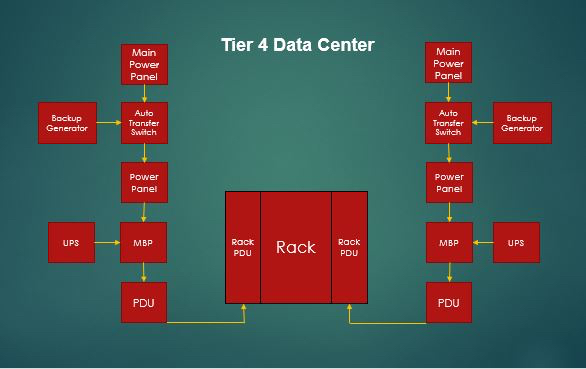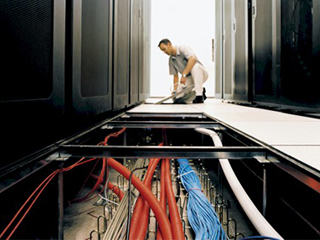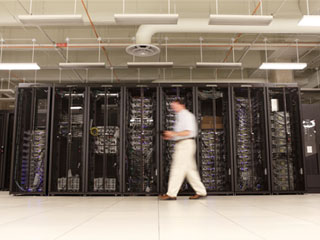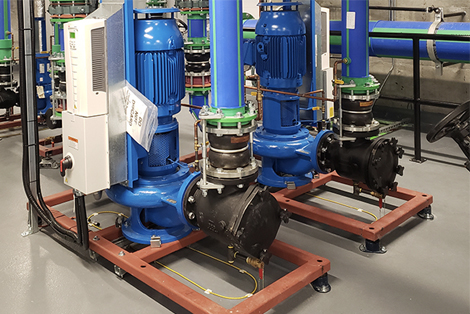What Is Tier Certification?
-
Tier I — Basic Infrastructure
-
Tier II — Redundancy Components
-
Tier III — Concurrent Maintainability
-
Tier IV — Fault-Tolerant
Tier IV and Business Objectives
Should You Go for Tier IV?

Photo Credit: www.entrepreneurshiplife.com
Is a Tier IV Data Center Right for Your Business?
Not all small businesses need to immediately jump to the capability and reliability of a Tier IV data center right away. The cost could prove to be significant when compared with lower-tier data centers. However, there may be some businesses that need the features and benefits of a Tier IV data center. In many cases, Tier III services offer very similar downtimes to Tier IV services and can help a small business with a limited budget make the right decision. The confidential data can be stored in a Tier IV data center or on-premise data center while public data is stored in a less secure and more budget-friendly option.
The Tier 4 Data Center has come to be known to be reliable and robust and represents the highest level of reliability, security, and availability among all the Tiers which makes it the ideal choice for corporations.
Why Is Tier IV So Expensive?

Photo Credit: brazilian.report
Tier 4 Data Centre Features:
- ECS Tier 4 Datacenter in Gujarat with State-of-Art Technologies
- 2N+1 Fully Redundant Infrastructure
- 96-Hour Power Outage Protection
- Fire Detection and Suppression Systems
- High-Level Physical Security, Biometric Access Management
- Diverse Connectivity Features and Carrier-Neutral
- Customer SLA for Availability: Up to 99.999
- TIA: 942 Rated 4 -Fault-Tolerant Site Infrastructure with Lowest annual downtime
- 24×7×365 Help Desk
- 24×7×365 Monitoring of Collocated IT Assets
- Network Operations Centre as well as Security Operation Centre
Where our Enthusiast Expert Team is Happy to Help you Anytime. - The Most Competitive Pricing
AKCP Monitoring the Tier IV
AKCPro Server is our world-class central monitoring and management software. Suitable for a wide range of monitoring applications. Free to use for all AKCP devices. Monitor your infrastructure, whether it be a single building or remote sites over a wide geographic area. Integrate third-party devices with, Modbus, SNMP, and ONVIF compatible IP cameras.
Monitor all your AKCP devices
All deployed AKCP base units and attached sensors can be configured and monitored from AKCPro Server (APS). Base units communicate with the server through your wired local network (LAN) or wide area network (WAN). Remote sites with no wired network send data to the server through the cellular data network.
Integrated Monitoring of All Devices
AKCPro Server integrates all your environmental, security, power, access control, and video in a single, easy-to-use software.
Environmental Monitoring
Monitor all your temperature, humidity, airflow, water leak, and other environmental sensors. Configure rack maps to show the thermal properties of your computer cabinet, check the temperature at the top, middle, bottom, front, and rear, as well as temperature differentials.
Security Monitoring
Ensure that your facilities and critical infrastructure are secured. Door contact sensors, audible and visual alarms are configured and managed from your custom desktops in APS.
Power Monitoring
Monitor single-phase, three-phase, generators, and UPS battery backup power. AKCPro Server performs live Power Usage effectiveness (PUE) calculations so you have a complete overview of your power train and how adjustments in your data center directly impact your PUE.
Access Control
AKCPro Server is used to administer the access rights and schedules for all AKCP Door Control, Cabinet Control, and RFID Cabinet locks. Secure your assets, control access, and generate reports to give a complete audited trail of access.
Video Monitoring
Video feeds from Integrated ONVIF compatible IP cameras and cameras connected to AKCP securityProbe base units can be monitored and recorded in AKCPro Server. Synchronize sensor events with video in the playback window for an “eyes on” to any sensor events.
Takeaway
We can conclude that a Tier 4 Data Center indicates the most robustly designed data center.
- Budget: This can be the determining factor for many businesses. In many cases, a hybrid solution of on-premise or multiple cloud data centers may be the right choice.
- Security: Does the type of data being stored require the features and benefits offered by a Tier IV data center?
- Flexibility and scalability: On-premise data centers are customizable but may lack the scalability needed from growing businesses. Can a cloud-based data center help alleviate this problem?





